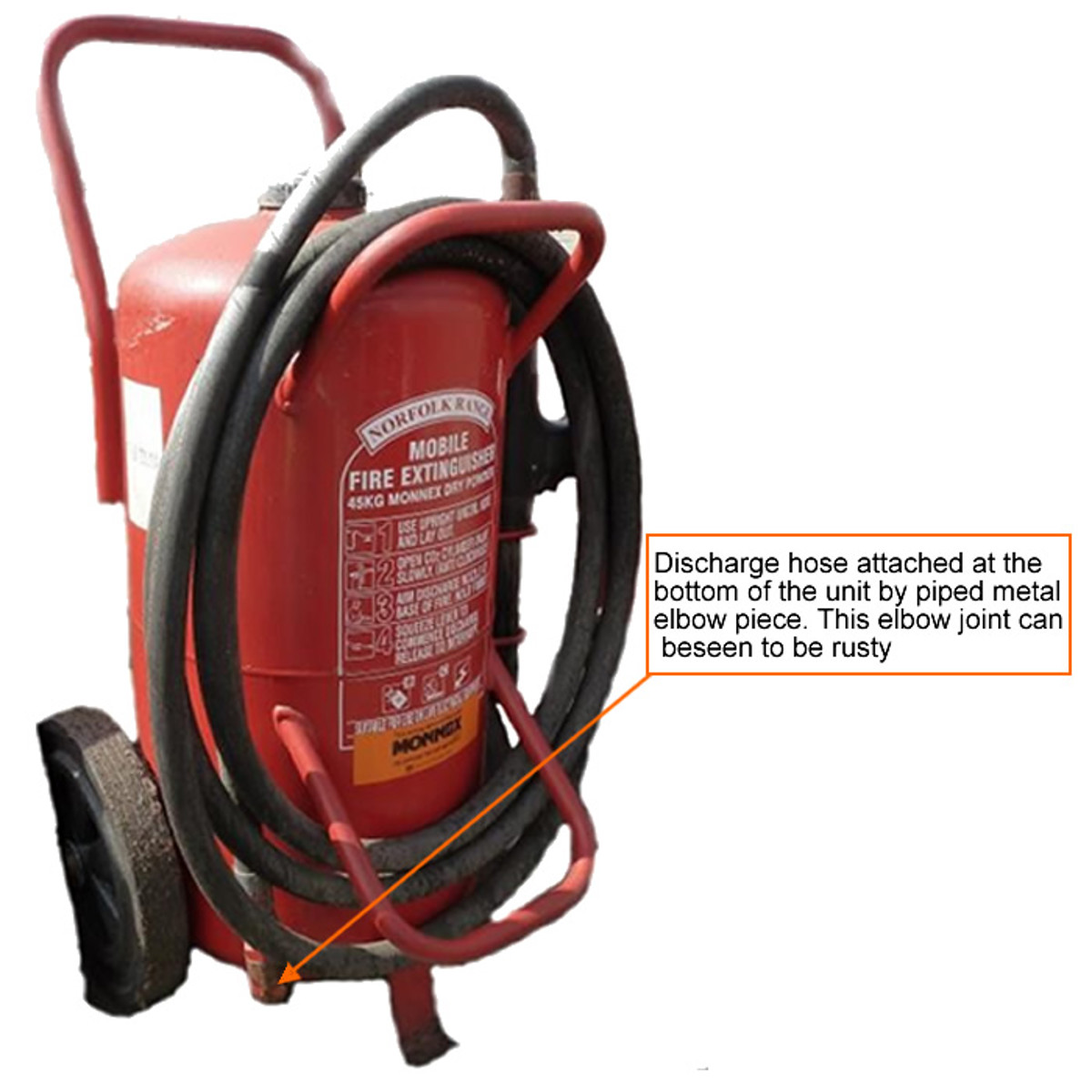Older “Norfolk Range” powder extinguishers from before 2009
- Safety Flash
- Published on 22 October 2015
- Generated on 10 July 2025
- IMCA SF 16/15
- 1 minute read
The UK Health and Safety Executive (HSE) has published the following alert regarding a fault in older ‘Norfolk Range’ large dry powder fire extinguishers, manufactured in the United Kingdom before 2009.
These extinguishers may be affected by moisture ingress at a threaded joint at the base of the unit, rendering the unit inoperable. The problem may not be identified during ‘routine’ service inspections.
Users should identify if their extinguishers are likely to be affected. If yes, and the extinguisher has been left exposed to adverse conditions since its last extended service, the condition of the elbow joint at the base of the unit should be examined by a competent service engineer.
If you are unsure if your extinguishers are affected by this safety alert, you may wish to consult your supplier.
More detailed information is available from the UK HSE: hse.gov.uk/safetybulletins/norfolk-large-wheeled-dry-powder-fire-extinguishers.htm

type of large dry powder extinguisher affected
IMCA Safety Flashes summarise key safety matters and incidents, allowing lessons to be more easily learnt for the benefit of the entire offshore industry.
The effectiveness of the IMCA Safety Flash system depends on the industry sharing information and so avoiding repeat incidents. Incidents are classified according to IOGP's Life Saving Rules.
All information is anonymised or sanitised, as appropriate, and warnings for graphic content included where possible.
IMCA makes every effort to ensure both the accuracy and reliability of the information shared, but is not be liable for any guidance and/or recommendation and/or statement herein contained.
The information contained in this document does not fulfil or replace any individual's or Member's legal, regulatory or other duties or obligations in respect of their operations. Individuals and Members remain solely responsible for the safe, lawful and proper conduct of their operations.
Share your safety incidents with IMCA online. Sign-up to receive Safety Flashes straight to your email.